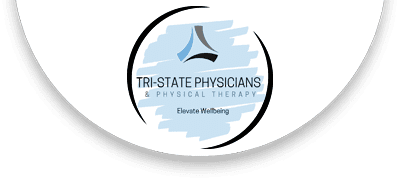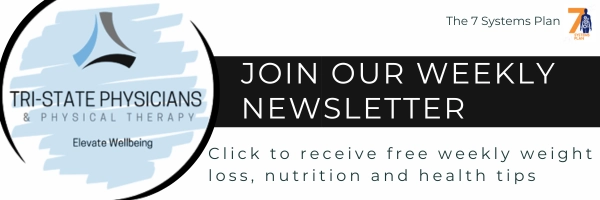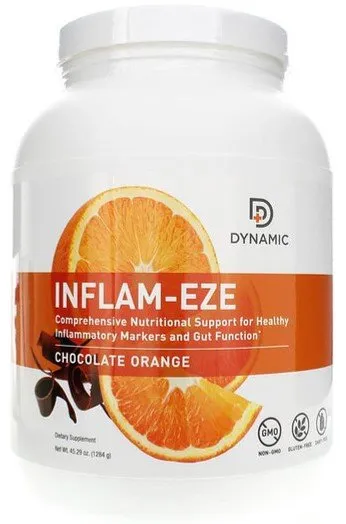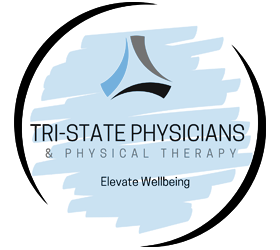A Must-do Blood Test in South Sioux City NE
The Double-Edged Sword of Iron: Why Balance Matters
Iron is a crucial mineral for the body, integral to many functions, particularly oxygen transport. However, it is essential to understand that while iron in South Sioux City NE is vital, both deficiency and excess can lead to significant health issues. While deficiencies will eventually cause fatigue and drive you to seek care, excess iron has no symptoms as it damages every part of the body and can kill you. This possibility is why it is so vital to achieve the right balance.
Iron’s Role in the Body in South Sioux City NE
Iron’s primary function is to bind to the hemoglobin molecule and facilitate oxygen transport from the lungs to tissues throughout the body. Hemoglobin, a protein in red blood cells, is responsible for oxygen delivery to every cell. Without sufficient iron, the body cannot produce enough hemoglobin, leading to iron deficiency anemia. This condition results in insufficient oxygen reaching the cells, causing fatigue, weakness, and other health issues.
Iron also plays a role in various metabolic processes, including DNA synthesis and electron transport within cells. It is vital for proper immune function, cognitive development, and optimal energy levels. Given its importance, it is clear that maintaining the right iron balance is critical.
Who is at Risk of Iron Deficiency?
Iron deficiency anemia is a common problem, particularly among two primary groups:
- Children: Rapid growth increases their need for iron. Children’s bodies require more iron to produce additional red blood cells and muscle tissue during their early years.
- Menstruating Women: Regular blood loss during menstruation can deplete iron stores. Women of childbearing age lose blood monthly, therefore iron, necessitating a higher intake to replenish their levels.
Other causes of anemia include acute blood loss, nutrient deficiencies like vitamin B12 or folic acid, chronic diseases such as cancer, an enlarged spleen, and genetic conditions like sickle cell anemia and thalassemia. Thalassemia, for instance, involves poorly formed hemoglobin, leading to smaller red blood cells and a lower hemoglobin count despite a higher number of red blood cells.
Diagnosing Anemia
Diagnosing anemia is relatively straightforward with blood tests. However, identifying the underlying cause is crucial. Simply supplementing with iron when another condition is responsible for the anemia can worsen the situation, potentially leading to severe complications or premature death.
The Dangers of Excess Iron
Iron’s double-edged nature means that while deficiency is problematic, excess iron is equally concerning. The body has a limited capacity to excrete iron, leading to accumulation if intake exceeds need, particularly in men and postmenopausal women who do not experience monthly blood loss.
Health Risks of Iron Overload
Iron is a potent oxidative stressor, capable of generating free radicals that damage cells and tissues. Studies have linked excess iron to several serious health issues:
- Cardiovascular Disease (CVD): Elevated ferritin levels are associated with increased risks of heart attack and stroke. Iron overload can damage the endothelial lining of blood vessels, leading to atherosclerosis and other cardiovascular problems.
- Diabetes: High ferritin levels can impair glucose metabolism, significantly increasing diabetes risk. Excess iron interferes with insulin signaling, making it harder for the body to regulate blood sugar levels.
- Cancer: Oxidative stress from iron can damage DNA, increasing cancer risk. Iron-induced free radicals can cause gene mutations, which may lead to the development of cancerous cells.
- Neurodegenerative Diseases: Conditions like Alzheimer’s are linked to iron buildup in the brain, contributing to plaque formation and neuronal damage. Excess iron in the brain can exacerbate oxidative stress and inflammation, accelerating neurodegenerative processes.
Research Highlights
A meta-analysis found that higher iron levels were associated with a higher risk of cardiovascular disease in 27 out of 55 studies. Elevated ferritin, a marker of iron stores, significantly increases the risk of heart attacks and metabolic syndrome. Scandinavian studies have shown a two to five-fold increase in heart attack risk with high ferritin levels. Another study indicated that each 1% ferritin increase raised the risk of heart attack by 4%, with only smoking posing a greater risk.
Canadian research has also shown that higher serum iron (as opposed to serum ferritin) levels significantly increase the risk of heart attack, with men facing a twofold risk and women a fivefold risk.

Managing Iron Levels
Reducing Excess Iron
If your iron levels are high, donating blood is the most effective way to reduce them. Adult men should aim to donate blood two to three times a year once their levels are normalized. If donating blood is not an option, therapeutic phlebotomy, prescribed by a doctor, can help.
Excess Iron Sources and Dietary Considerations
- Processed Foods: Many are fortified with iron, contributing to overload. Iron fortification in processed foods, such as cereals and breads, is intended to prevent deficiencies but can lead to excess intake.
- Multivitamins: These often contain iron unnecessarily. Many people take multivitamins without realizing they may not need the additional iron.
- Limit Vitamin C with Iron: Vitamin C increases iron absorption, so avoid combining high-iron and high-vitamin C foods. For example, avoid eating a steak with a glass of orange juice.
- Alcohol: This enhances iron absorption and should be consumed in moderation. Reducing alcohol intake can help manage iron levels.
- Calcium: This mineral competes with iron for absorption and can help limit iron uptake when consumed together with iron-rich foods. Dairy products, for instance, can be paired with meals to reduce iron absorption.
- Cooking Utensils: Cooking with cast iron, especially acidic foods, increases iron intake. The iron leaches into the food during cooking, especially when cooking acidic items like tomato sauce.
- Well Water: Can be high in iron, necessitating filtration. Some regions have naturally high iron levels in groundwater, which can contribute to overload if consumed regularly.
Alternative Strategies
While some researchers advocate for iron chelation, phytate or phytic acid can lead to other mineral deficiencies. A safer option is curcumin, which can chelate iron effectively and may be used as a supplement if iron levels are high. Curcumin is found in turmeric and has anti-inflammatory and antioxidant properties, making it a beneficial addition to your diet. The NutriDyn functional food InflamEze is excellent for this and many other problems.
Understanding Iron Overload
Iron overload often goes undiagnosed because many healthcare professionals are unaware of its prevalence and dangers. Besides genetic factors like hemochromatosis, lifestyle factors contribute significantly to iron accumulation.
Hemochromatosis
Hemochromatosis, a genetic disorder, causes the body to absorb and store excessive iron. Approximately 1 in 3.5 people in the U.S. have the single gene variant, and about 1 million have the double gene variant, which poses a higher risk of severe health issues.
Hemochromatosis can damage organs, particularly the liver, heart, and pancreas. If left untreated, it can cause cirrhosis, heart failure, diabetes, and other severe conditions.
Iron and the Brain
Recent research from the Netherlands indicates that iron buildup in the brain contributes to Alzheimer’s disease by enhancing oxidative stress. Addressing iron overload may, therefore, offer a new approach to managing neurodegenerative diseases alongside efforts to clear amyloid plaques.
Iron accumulation in the brain can interact with amyloid-beta plaques, contributing to toxicity and oxidative damage. This process can accelerate the progression of Alzheimer’s disease and other forms of dementia.
Monitoring Iron Levels
Serum Ferritin Test
The serum ferritin test measures iron stored in the body. For optimal health, adult men and non-menstruating women should aim for ferritin levels between 40 and 60 ng/mL. Levels above 80 ng/mL are considered excessive and increase disease risk. Annual testing is recommended to monitor and maintain safe levels.
Gamma-Glutamyl Transpeptidase (GGT) Test
The GGT test measures liver enzymes and can indicate excess free iron. Elevated GGT levels correlate with increased risks of cancer, heart disease, and sudden cardiac death. Ideal GGT levels are around 9 U/L for women and 16 U/L for men.
Final Thoughts
Iron is a double-edged sword. While it is essential for life, it can become a silent killer in excess. Understanding the delicate balance required and monitoring and adjusting your iron levels can have profound implications for your health. Regular check-ups and blood tests, awareness of your genetic predispositions, and mindful consumption of iron-rich foods and supplements are your best defenses against the dangers of both iron deficiency and overload.
Stay vigilant, stay informed, and take control of your health by managing your iron levels wisely. Your body will thank you for it.
For your health,
Dr. Pat
Video of the Week
A New and Safe Alternative to Ozempic for Weight Loss
Recipe of the Week:
Teresa’s 7 System’s Kitchen
The 7 Systems Plan recommends using glass, stainless steel, and cast iron rather than non-stick cookware. However, to reduce the iron intake from cast iron (especially when preparing acidic foods such as tomatoes), use modern, high-quality, trusted brands with a food-safe enameled coating.

Sign up below to get our weekly newsletter
sent directly to your email inbox!
OFFICE HOURS
Monday
8:00am - 6:00pm
Tuesday
8:00am - 6:00pm
Wednesday
8:00am - 6:00pm
Thursday
8:00am - 6:00pm
Friday
8:00am - 6:00pm
Saturday
8:00am - 10:45am
Sunday
Closed
Tri-State Physicians &
Physical Therapy Clinic
3900 Dakota Avenue #6
South Sioux City, NE 68776





